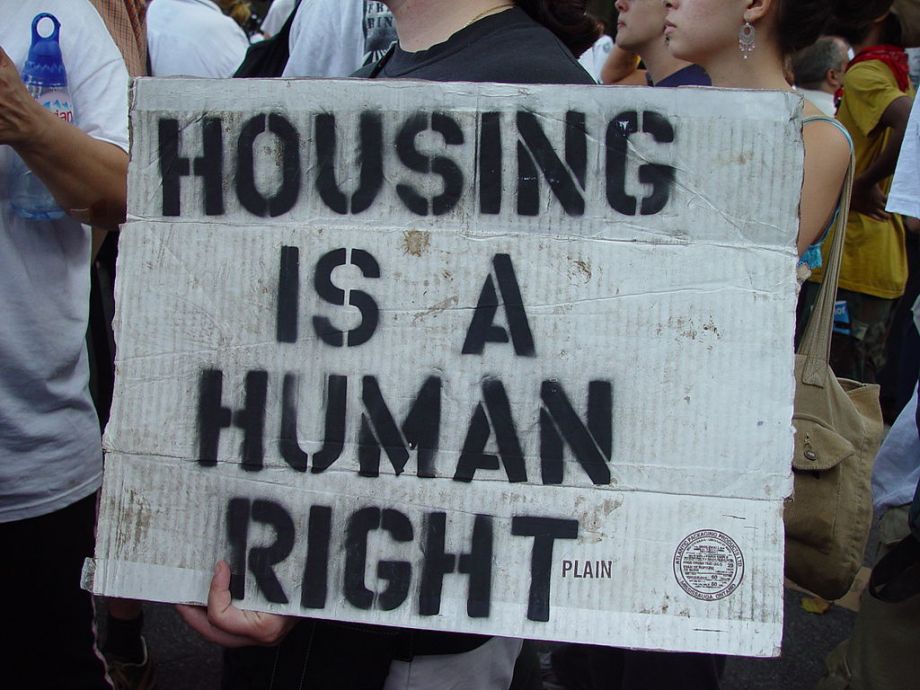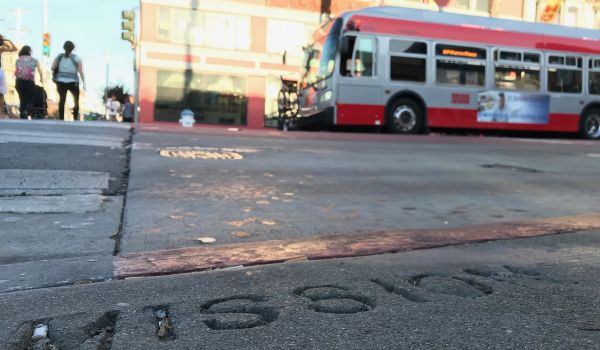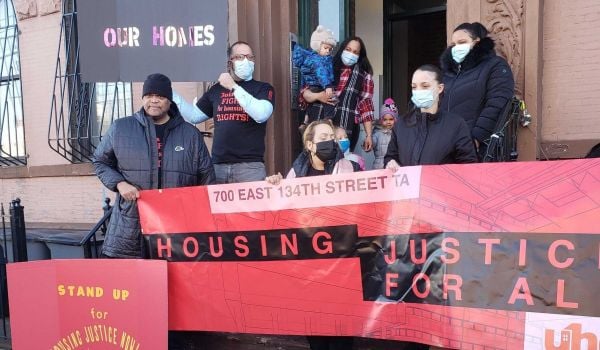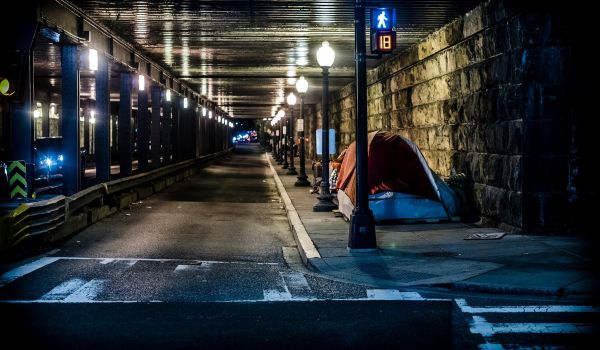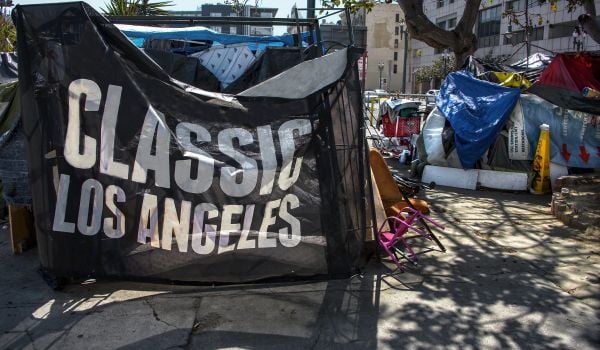Human Rights Watch Identifies Risks to Public Housing Tenants
A report from Human Rights Watch found that the federal government’s Rental Assistance Demonstration (RAD) program is depriving New York City Housing Authority (NYCHA) tenants of rights. RAD was signed into law in 2012. It allows units to enter private management in order to receive outside funding with the goals of addressing a backlog of repairs. Federal financial support for long-term repairs in public housing has decreased 35 percent in the last 20 years, adjusted for inflation, according to the report.
Six NYCHA housing developments signed onto RAD starting in 2016. Two saw an increase in evictions, including the Ocean Bay apartments, as City Limits reported in 2019. Human Rights Watch drew uncertain conclusions on the increase of evictions in RAD developments, as three of the NYCHA housing developments entered the program just as the nearly two-year pandemic eviction moratorium was setting in. But the report points out that NYCHA’s tenants in RAD are losing the supervision of a federal monitor, which a court appointed to the agency in 2018.It also found that tenants suing NYCHA for repairs were deferred to RAD’s private management.
The report has long-term implications for the future of public housing as the federal government has expanded RAD rather than increase funding for capital repairs. The program was originally funded to cover 60,000 units nationwide but Congress expanded funding to cover 455,000 units, according to Human Rights Watch.
Cincinnati Buys Homes Instead of Private Investors
The Port of Greater Cincinnati Development Authority will pay $14.5 million for 195 homes in Cincinnati and Hamilton County, according to The Real Deal. The agency outbid over a dozen investment firms, according to the outlet, and will rent the units affordably, and upgrade them before selling them to low- and middle-income tenants, according to the Wall Street Journal. The purchase is an effort to preserve affordable homeownership; in Cincinnati, private investors have been purchasing single-family homes and renting them as many people can’t afford to purchase outright. The city joins other jurisdictions, including Oakland and San Francisco, that have purchased properties with the intent of keeping them affordable to low-income residents.
San Francisco Report Shows Over 40,000 Vacant Apartments
A new report reveals over 40,000 vacant units in San Francisco as of 2019 and a 20 percent increase since 2015. According to the report, which was released by the office of City Supervisor Dean Preston, the rate of new vacancies exceeds new housing production.
The report, which parses data from the American Community Survey, also shows that the city has met its Regional Housing Needs Assessment goals for market rate housing for the years 2015-2023 but is 10,617 units short on its goals of producing affordable housing.
The report provides some evidence that producing new market rate or above market-rate units will not, on its own, ease the affordability crisis if no policies exist to ensure the units are put up for rent. It also further stresses the importance of prioritizing more affordable units in San Francisco’s new housing production.
The report also suggests implementing taxes on vacant units in an effort to both raise money for affordable housing and disincentivize their ongoing vacancy, freeing up more of the city’s housing stock.
The report will be controversial because of its source; Supervisor Dean Preston has been criticized for opposing housing production of mixed income developments on the basis that they do not provide enough affordability. One callout, by members of local YIMBY groups, “Dean Preston’s Housing Graveyard” said that only 87 homes had been approved since he became supervisor, and that he blocked production of 8,587 homes, 22% of which were affordable. Preston, a former tenants rights advocate, has advocated for Proposition K, a wealth transfer tax that allows the city to develop or acquire 10,000 new units of affordable housing.
Speaking by phone about the report, Preston acknowledged that because of the way ACS collects data, it’s not clear how long some of the units have been vacant or if they are intended to eventually go on the market. But he said if a tax on vacant units is implemented, the Department of Buildings would be able to parse units that are being rehabilitated from units that are being intentionally kept off the market.
This article is part of Backyard, a newsletter exploring scalable solutions to make housing fairer, more affordable and more environmentally sustainable. Subscribe to our weekly Backyard newsletter.

Roshan Abraham is Next City's housing correspondent and a former Equitable Cities fellow. He is based in Queens. Follow him on Twitter at @roshantone.



